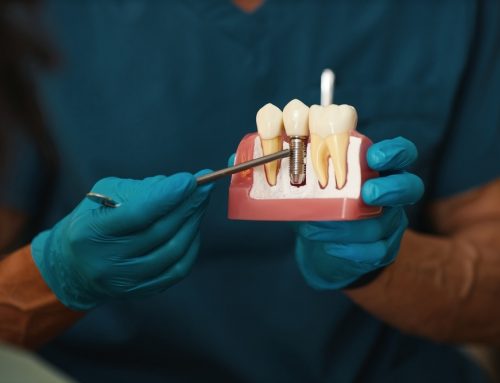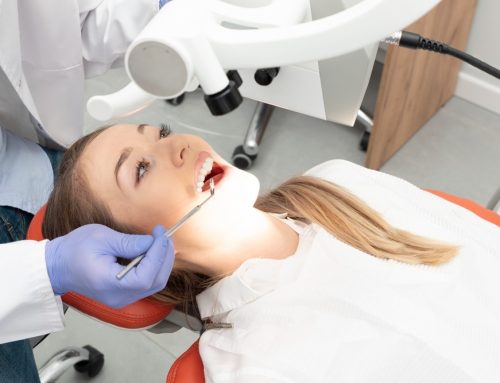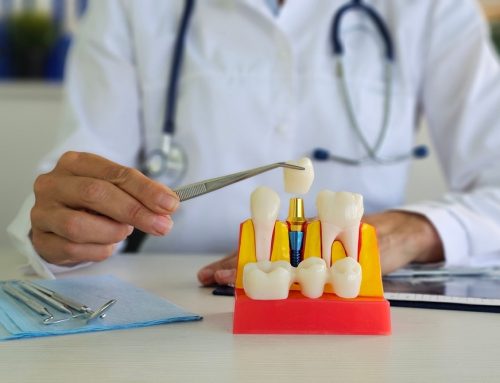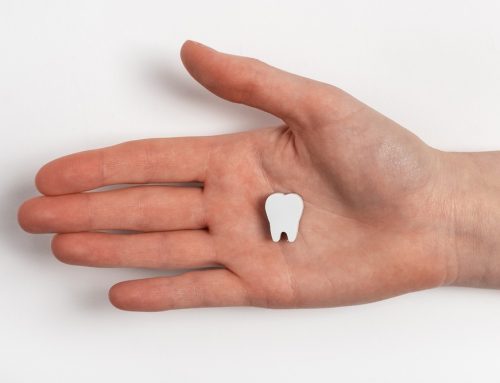If you have to pass on cold or hot drinks because they cause your teeth pain, then maybe it’s time you talk to your dentist about the possibility that you have sensitive teeth. There are many reasons for people to have sensitive teeth, but also many treatments to help with it as well. This blog will go over the best treatments for teeth sensitivity so that you could go back to enjoying those cold and hot beverages you miss enjoying.
What is Teeth Sensitivity?
Teeth sensitivity or “dentin hypersensitivity” is the pain or discomfort in the teeth from certain stimuli, such as hot or cold temperatures. It may be a temporary or a chronic problem, and it can affect one tooth or several teeth of an individual. It can have a number of different causes, but most cases of teeth sensitivity are easily treated with a change in your oral hygiene regimen.
Symptoms of Sensitive Teeth
People that have teeth sensitivity may experience discomfort or pain as a response to certain triggers. The pain takes place on the affected teeth. The most common triggers to teeth sensitivity include:
- Cold beverages and food
- Hot beverages and food
- Acidic beverages and foods
- Sweet beverages and food
- Cold air
- Brushing or flossing
- Alcohol-based mouthwashes
Your symptoms can come and go from time to time. The pain range can vary from mild to intense.

What Causes Teeth Sensitivity?
Not everyone’s level of teeth sensitivity is the same due to different levels of enamel thinning. Enamel is the outer layer of your tooth that provides protection. In most cases, the tooth’s enamel can be worn down due to:
- Regularly drinking acidic foods and beverages
- Brushing your teeth too hard
- Using a hard toothbrush
- Grinding your teeth at night
Gum recession can also be a cause for teeth sensitivity as it exposes your tooth, leaving it unprotected. Tooth decay, broken teeth, chipped teeth, and worn-down fillings or crowns can also leave the dentin of the tooth exposed. Your teeth can also be temporarily sensitive following dental work like getting crowns, filling, or a teeth whitening procedure. However, the sensitivity should subside after several days.

Treatments for Tooth Sensitivity
Depending on the level of tooth sensitivity that you have, a different treatment may work better for you than another. Here are a few treatments for teeth sensitivity that isn’t too serious:
- Desensitizing Toothpaste – After several applications, desensitizing toothpaste can help block the pain associated with tooth sensitivity. There is a wide variety of products available over-the-counter. Ask your dentist which product might work best for you
- Salt Water Rinse – Salt is an effective antiseptic and it can also help to reduce inflammation. To alleviate pain symptoms from sensitive teeth, gargle a glass of lukewarm water with 1/2 a teaspoon of salt twice a day
- Honey and Warm Water – Honey is an antibacterial agent that can help speed healing and reduce pain, swelling, and inflammation. To reduce pain from sensitive teeth, rinse your mouth with warm water and a spoonful of honey. This rinse will promote oral healing
- Green Tea – Green tea is another product known for its health benefits. To help combat teeth sensitivity, use unsweetened green tea as a mouthwash twice a day to strengthen teeth and reduce inflammation
If the following home remedies didn’t work, then the following treatment might be needed to help solve the issue:
- Fluoride – Your dentist can apply fluoride to your teeth’ sensitive areas to strengthen tooth enamel and reduce the pain. They can also suggest the use of prescription fluoride at home for regular use
- Desensitizing or Bonding – Occasionally, exposed root surfaces can be treated by applying bonding resin to the sensitive root surfaces. Bonding essentially seals up your nerve endings by protecting them from the food, beverages, and air
- Surgical Gum Graft – If your tooth root has lost gum tissue, a small amount of gum tissue can be taken from elsewhere and attached to the affected site. This protects the exposed roots and reduces sensitivity
- Root Canal – If your sensitive teeth cause severe pain and other treatments aren’t effective, then your dentist might recommend a root canal — a procedure used to treat problems in the tooth’s softcore. While this might seem like a significant treatment, it’s considered the most successful technique for eliminating tooth sensitivity
The best way of treating your tooth sensitivity is by caring for your teeth by brushing them at least twice a day with a soft-bristled toothbrush. Use gentle strokes other than harsh brushing. You should also consider eating and drinking less acidic foods and drinks. When drinking acidic drinks, try using a stray to limit the contact to your teeth. Your dental health is important; don’t let teeth sensitivity ruin your daily life. We hope this blog helped you get an idea of what you can do to treat teeth sensitivity. For all of your dental needs, give us a call at (619) 444-1001 or visit our website to book an appointment. We are located at 707 Arnele Avenue, El Cajon, CA 92020.









